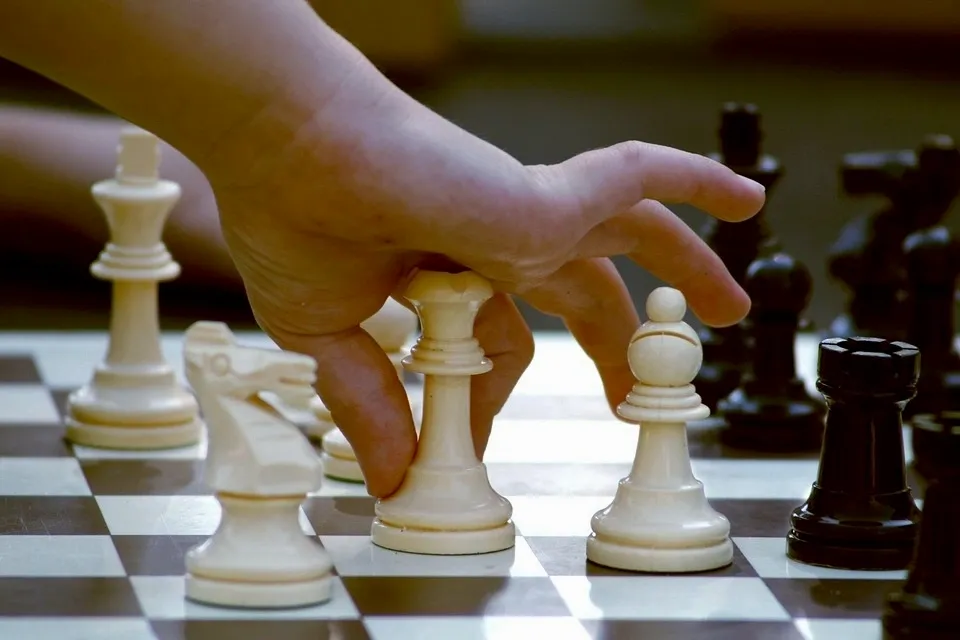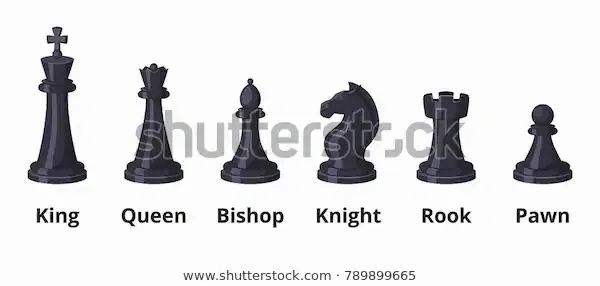Chess nurtures leadership skills by exposing the player to scenarios that require patience, strategy, compromise, discipline, and other attributes. The skills acquired while learning chess parallel real-life leadership skills.
What Do Great Leaders Have That Others Lack?
Great leaders have balance, foresight, and are of noble character. Vision, integrity, humility, focus, and courage are their most distinguishing attributes. Leaders are strategic and can motivate the contribution of others towards their goals.
But Then Are Leaders Born or Made?
The only reason people ask this question is because leadership is not a hard and fast skill like math, reading or science.
Leadership is a soft skill that taps into the personality of a person to bring out their unique perspectives, qualities, and behavior when performing leadership roles.
Soft skills require creativity to build. Soft skills are perfectly assimilated into a person until they become part of the person’s character. For instance, there may be no formula for teaching your child about the importance of having a friendly attitude. However, there may be certain activities that perhaps require collaboration that will take your child through the motions of being cordial with people around him/her.
Such skills are acquired by being put in situations that encourage the child to work out what they may know innately. And if one lacks innate knowledge, you can create circumstances that will impart the knowledge needed.
The ability of chess to teach soft skills is what makes chess such an exciting game for children because it is a hard skill like math and science and instils soft skills into the child.
Of great leaders of our time, chess has been instrumental in building in them leadership qualities. Among the prominent leaders who play or played chess are Google CEO Sundar Pichai, political leaders like US President Bill Clinton, Benjamin Franklin, Governor Hans Frank of Poland, King Farouk of Egypt, Muammar Gaddafi among others.
What Are the Leadership Qualities Acquired Through Chess?
Decision making, independence, consistency in pursuing goals, strategy, team building and compromise are the top 6 leadership skills that people learn through chess.
It is no longer possible to ignore the parallels between chess and real-life leadership aptitude. Read along and let’s explore the leadership principles that your child will learn through the game of chess –
Principle 1: Clarify Objectives as Projects Mature
 In chess, the ultimate goal is to capture the opponent’s king and protect your king. Each player knows what the purpose of the other is and takes an offensive and defensive position to defend their respective king.
In chess, the ultimate goal is to capture the opponent’s king and protect your king. Each player knows what the purpose of the other is and takes an offensive and defensive position to defend their respective king.
As the game progresses, each player has fewer pieces on the board, and the king emerges as one of the most influential pieces.
Likewise, in life, great leaders in business understand what their competitors are aiming for and what they need to protect. Great leaders clarify objectives as a project nears the final stages. Such an approach is essential in helping the team to be constantly aware of interim milestones and the ultimate prize they’re working to attain.
Principle 2: Develop Strategy, Leverage, and Compromise

In chess, each piece has its own relative offensive strength value. Pawns are stronger when together in chains to protect each other.
And players understand the importance of maintaining this objective when moving the pawns.
Knights, on the other hand, are weak and useless when kept at the edge of the board. The Bishop has more strength when near long diagonals. Rooks have the most power in open files, and the queen should always be one move away from the centre where she is most robust.
Leverage and Compromise
Understanding the strength of each piece and leveraging on their power is what makes a good player. Once a child plays chess habitually, it builds in them an understanding of each the different advantages they have and also the strengths and weaknesses of their environment.
Leadership is also about leveraging individual strength and shielding yourself at the point where you’re most vulnerable. Chess also teaches on compromise, from the fact that there are pieces on the board that you really must give up if you’re to achieve your goal. Ultimately, the game requires that you prop up your Pawns or other pieces of low value for the opponent to take out.
And just like each piece has strength and value, a leader understands the power and importance of each person on their team. Children can learn this attribute very early, which equips them to leverage their strengths and those of the people in their family or among friends.
Strategy
Furthermore, chess will teach children that they need to develop their pieces so that they occupy the most strategic point on the board. Such is also essential when it comes to the execution of goals and strategy.
Leaders understand what they must act quickly to develop their ideas to remain relevant.
Principle 3: Discover and Support a Winning Team

In chess, the best players place their pieces on squares that position them for maximum influence.
Likewise, great leaders develop their team members through training, mentorship and affirmations.
Great leaders are keen to enhance the competencies of their team and arrange interactions to improve performance.
In chess Bishops and Rooks thrive in open lines, ranks and files for Rooks and diagonals for Bishops. To achieve this, players have to move, exchange and even sacrifice Pawns. The leadership lesson here is the importance of creating a conducive working environment to support a team member to perform at their utmost best capacity
Final Thoughts
I’m sure by now, you understand the creative ways in which chess will equip your child with not only leadership skills but also essential life skills. Enroll your child for a FREE trial class and reach out to us to let us know if you want to join any of our available courses.


Recent Comments